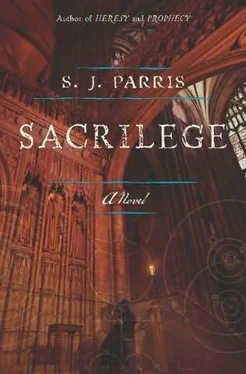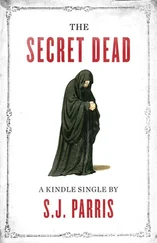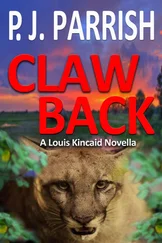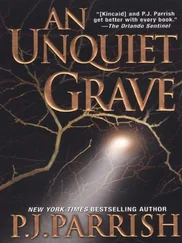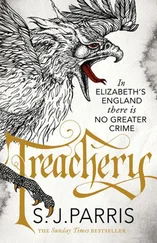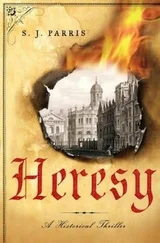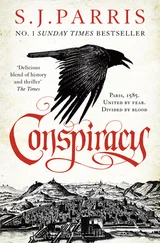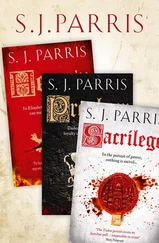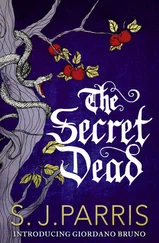“The house is not in my name yet, nor anything in it,” he blurted. “The attorney says—”
“Oh, the attorney says, the attorney says!” Bates rolled his eyes. “You bleat it like a catechism. Fuck the attorney—of course it’s yours! What are you, a child? Are you going to let that murdering bitch deprive you of your inheritance? Your father was hard enough on you when he was alive—the least you deserve is to enjoy his money now.”
“But I can’t touch it yet!” Nick wheeled about, looking from Bates to Charlie to the others until finally his wild gaze came to rest on me and I saw a dark flash of anger in his eyes, a hint of unpredictable fury.
This was a young man well capable of violence if provoked, I had no doubt, but the murder of Sir Edward, though brutal, was no hotheaded, sudden attack; the killer had planned it, waited for his opportunity, even planted evidence to condemn Sophia. I had yet to see whether this Nick was capable of such calculation.
He pointed a trembling finger at me, his eyes clouded with drink and rage.
“She will not take it from me,” he said, as if this were a personal threat. “Nor will that churl Tom Garth, nor the Widow Gray, nor any of them.”
I nodded in agreement, since this seemed the only possible response. Bates laughed.
“Poor Filippo has no idea what you are talking about, you arsehole,” he said. “Well then, it is settled—tomorrow we shall drink the night away at your house, Nick—and you must join us, friend.” He turned to me and winked. “Meet us here at seven—and be sure to bring a full purse.”
I punched him heartily on the arm by way of reply, a gesture I had learned from Sidney and which he seemed to appreciate. Silently, I congratulated myself; an invitation into the Kingsley house was more than I had expected on my first day in Canterbury. It would be something encouraging to tell Sophia, in any case, when I saw her the next day; a thought I comforted myself with that night as I lay alone on my straw mattress at the Cheker, sleep held at bay by questions. What was Tom Garth’s grudge against the Kingsley family? He must be a relative of the maid Fitch had mentioned, the one who had died, but what did he mean by taking the law into his own hands? What had he meant when he said Nicholas Kingsley was there that night? And what did the Widow Gray have to do with Edward Kingsley’s money? I sighed, turning uncomfortably to one side and then the other. Even the release that came from imagining Sophia stretched out beside me failed to bring the sweet oblivion of sleep.
I decided to call at the apothecary’s shop early the next day, as it was on the road to the weavers’ houses. Though my stomach was much improved—a change I could only attribute to the ale at the Three Tuns—I calculated that the purchase of Fitch’s tonic might be repaid by the garrulous apothecary’s store of local gossip. Plenty of people were abroad in the High Street by the time the cathedral bells were striking the hour of eight, carrying baskets or pushing barrows of goods, and most of the shopfronts had their windows open to passersby, but when I reached Fitch’s shop I found it still shuttered and the door closed fast. A plump girl in a white coif was peering anxiously in through the windows, her hands cupped around her face. A basket covered with a linen cloth sat on the doorstep.
“What time does he open?” I said, by way of conversation.
She jumped at being addressed, looking me up and down with apprehension, but then her eyes flicked nervously to the window again. “Is he expecting you?”
“He told me to come back this morning for a remedy he recommended. But I forgot to ask what time he opened.”
The girl shook her head. Neat white teeth chewed at her bottom lip. I guessed her to be in her late teens, though she had that freckled, pink-and-white English complexion that made her look younger.
“He’s always open before the bells sound for eight. And he especially asked me to stop by good and early as he wanted to send me shopping before I go to work. I do what I can for him since my aunt died last year. Poor Uncle,” she added, with a confidential air. “I used to help in the shop sometimes—he liked to teach me a little of his business—but Mother said it was not fit for a girl to learn, so that was an end of that. Now I have to work on the bread stall for Mistress Blunt.” She made a face that left no doubt as to her opinion of her current employer.
“You must be Rebecca, then,” I said, smiling. “He spoke of you when I was in the shop yesterday.”
The girl blushed and giggled, but the laughter quickly faded on her lips as she turned back to the shuttered windows.
“I hope nothing’s wrong. It’s not like him to be late. I’ve tried knocking, but there’s no reply and I can’t see a thing inside.” She bit her lip again.
I pressed my face to the nearest window, shading my face as she had done. The shutters were old and it was just possible to glimpse the inner room through chinks and splits in the wood, but the shop was so dim I could barely make out the shape of the shelves lining the walls.
“Sometimes he doesn’t hear if he’s in the back room with the stills all boiling and bubbling,” the girl continued, just as something caught my eye inside the shop: a pale shape on the floor. I squinted harder, closing my hands around my face to shut out every slant of daylight, and realised it was a book, lying faceup, its pages spread. It was not the only item on the floor either. Though I could not make out much, it looked as if the contents of the apothecary’s shelves had been scattered carelessly around the shop. Apprehension tightened in my chest.
“Is there another entrance to the shop?” I asked. The words came sharper than I meant and I saw my own anxiety reflected in her face.
“There is a yard, at the back,” she faltered. “It gives on to the back room and my uncle’s lodging above the shop. But why …?”
“I think I should check. You wait here.”
She nodded, her lips set with fear. I found a small alley running down the side of the shop next door; it led to a narrow lane behind the row of buildings on the High Street, their yards hidden by a brick wall perhaps six feet high. A small wooden gate in the wall proved locked from the inside, but it took little effort to climb and I dropped into the apothecary’s yard, one hand on my knife. The door to the back room of the shop was closed, the casements to either side intact. But when I tried the door it opened easily and I saw Fitch sprawled facedown in the room he had used as a distillery, a pool of blood congealed around his head.
I took a deep breath. The room was stiflingly hot, despite the early hour, and ripe with the smell of blood and meat. Flies buzzed purposefully around the body, the sound intrusively loud in the stillness. I crossed the room slowly, absorbing the devastation. My feet crunched across broken glass; there had clearly been a struggle in the room, for the apothecary’s glass bottles were smashed across the floor, sticky patches of liquid visible on the boards where their contents had spilled. Blood was spattered across the walls in places, and smeared on the floorboards, as if Fitch had not simply fallen where he lay, but careened around the room spraying blood from his wound before dropping. An iron poker lay discarded a couple of feet from the body; was this the weapon that had struck him down, or had he tried to defend himself with it?
I looked from the poker to the wide brick fireplace and understood the source of the room’s infernal heat: a few embers were still smoking in the hearth. I picked my way through the mess on the floor to take a look. A blackened pot hung over the fire on an iron spit. I picked up a small bellows that lay in the hearth and squeezed it towards the ashes; a faint red glow coughed into life for a moment before fading in a cloud of grey dust. It had been some hours since this fire was stoked; if the apothecary kept it burning in this room to make his infusions, he must have been killed the night before. I wiped the sweat from my brow with my sleeve, and shook my head, suddenly overwhelmed by the enormity of what I had walked into. I had come to investigate one murder and stumbled by chance upon another; now the law would require me to testify as the first finder of the body, and there could be no pretending otherwise, since the girl was waiting outside for me. But who could have wanted to kill the cheerful apothecary? He had not given the impression yesterday that he was a man with anything to fear.
Читать дальше
Конец ознакомительного отрывка
Купить книгу
